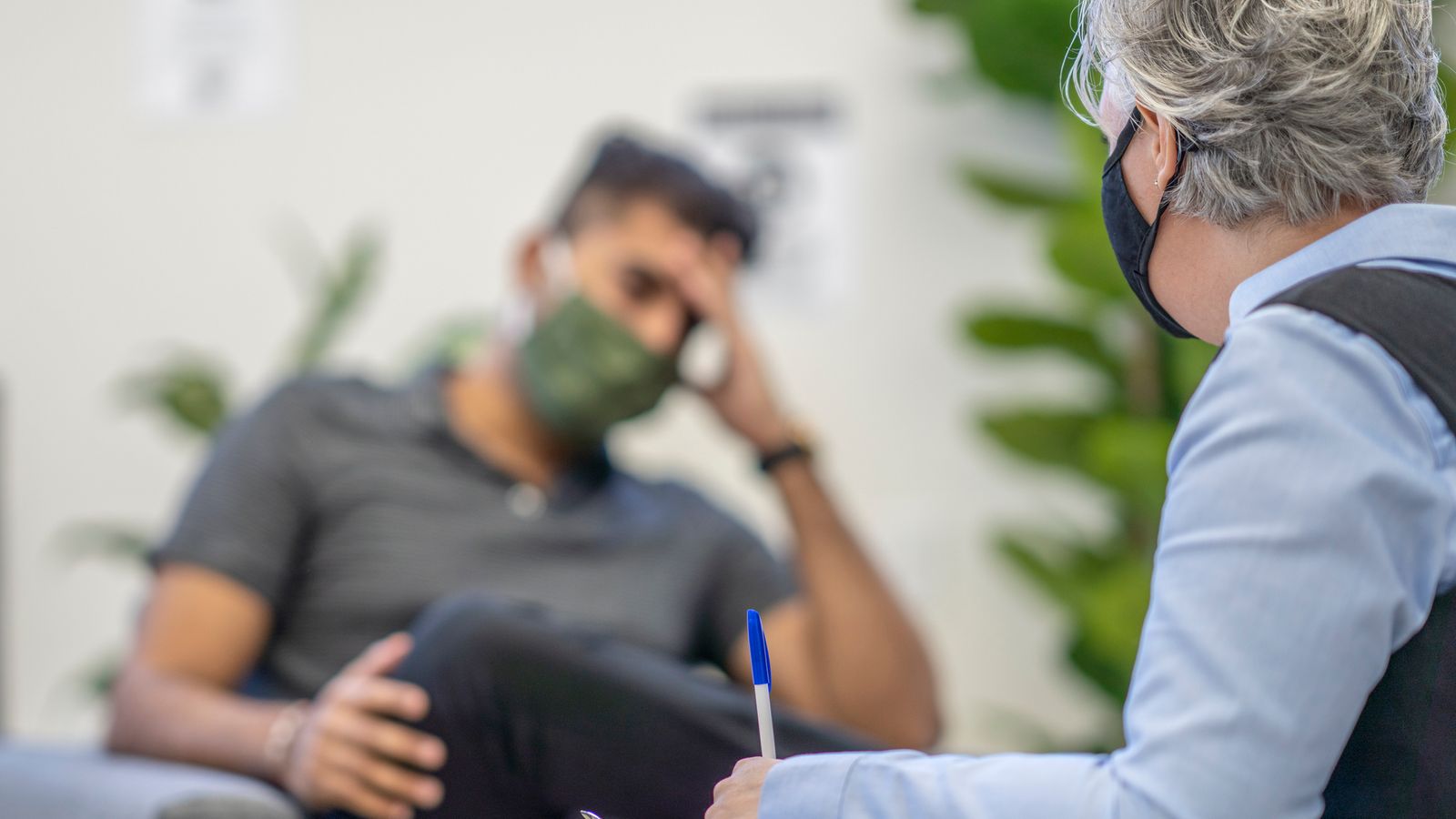People who have had COVID-19 are more likely to go on to suffer depression and anxiety, a study has suggested.
US researchers looked at data for 153,848 people who had experienced coronavirus and compared them with more than 560,000 with no history of COVID and a further large control group from before the pandemic.
The results showed that COVID-19 was associated with an increased risk of mental health problems, including anxiety, depression, substance use and sleep problems, up to a year after infection.
Experts said the research backs up previous findings but has a longer follow-up, with people tracked for 12 months.
Compared with the non-infected group, people with COVID-19 showed a 60% higher risk of a mental health diagnosis or needing a mental health prescription at the one-year point.
Anxiety rates were 35% higher among those who had had COVID and 39% higher for depression. People were also 55% more likely to use anti-depressants.
Having had COVID meant a small increase (2.4%) in those suffering sleep disorders, and a tiny, but measurable increase (0.4%) in substance use problems.
COVID-19: Why have cautious government advisers now changed their minds on vaccines for 5 to 11-year-olds?
Coachella will not be asking ticket-holders for 2022 event to be vaccinated, wear masks or test negative for COVID
COVID-19: Ending free testing a mistake and will make pandemic worse, Sir Keir Starmer says
Read more:
UK volunteers needed to trial new Omicron-specific vaccine
Ending free testing a mistake and will make pandemic worse, Sir Keir Starmer says
Similar results were found when the COVID-19 group was compared with the pre-pandemic group.
The risks were highest in people admitted to hospital but were still apparent in those who recovered at home.
Dr Adrian James, president of the Royal College of Psychiatrists, said: “Many people face an uphill battle to rebuild their lives,” adding: “Treatment is vital but complicated by the reality that most people experiencing mental health difficulties after infection don’t seek help.
“Actively monitoring the recovery of patients through a ‘screen and treat’ programme can help make sure they get the right kind of mental health care at the right time.”
Researchers used data from the US Department of Veterans Affairs and published their work in the British Medical Journal. Most of those in the study were men with an average age of 63.






















